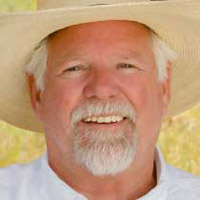How to Efficiently Scale With Capital

The goal of most startup companies is to achieve growth and profitability. However, the process of achieving those goals can be different for every company. The key to long-term success for most startups is to scale with efficiency, but that is not always easy. I recently read an interview by Alan Olsen, CPA and Managing Partner Greenstein, Rogoff, Olsen & Co., LLP a regional CPA firm of Montgomery Kersten, an angel investor and Independent Board member of several startups in Silicon Valley. Alan mentioned to Monty that many well-known startup companies have a reputation of burning through a lot of cash quickly. So Alan asked him how he helps companies scale and balance spending with growing their profits to a break-even point?
Old-Fashioned Approach
Monty said when it comes to scaling he is much more old-fashioned than many of the current crops of big-name startup companies, including Uber, which raised huge amounts of funding and have a massive marketing footprint. He has nothing against what these companies are doing. But Monty believes in capital efficiency and building huge shareholder value with small injections of financing. “I like the old fashioned way of modest capital, great productivity, profitability; conserve and build cash, after you have to burn it for a short period of time.”
Startup Bubble Time?
Alan asked Monty if we were currently in a startup bubble? “Everybody has their own view. I strongly feel that we are in a startup bubble. We’ve had a record amount of venture capital dumped into companies that aren’t profitable and that aren’t having exits. We have almost no IPOs and many fewer acquisitions and a whole lot of unicorns with no way out for investors. I think there’s a big bubble that’s going to pop here and I think Silicon Valley traffic patterns are going to get easier for our commutes in the next year.”
More IPOs Needed
Alan asked Monty about the fact that there are no exits? “It’s a very, very serious problem because the venture capitalists promise their investors returns that are liquid cash. They have to return cash or public stock to their limited partners, as a way to pay them back and reward them with returns on their capital. If they have no acquisitions of their own investments and they have no IPOs they don’t have any value yet, beyond just the paper stock certificate that they can give back to their limited partners. So there is an imperative to break the log jam in IPOs and to have acquisitions happen more frequently.” Monty foresees a revisiting of the dot.com bust; not so much in dot.com businesses today but in young startups that have raised too little and spent too quickly. Those companies that have too thin a business model and didn’t have a plan to win customers and turn profitable in time could be in trouble. “I think you’re going to see a lot of washouts intentionally let go by the venture capitalists so they can concentrate on the stronger horses they have running in the race.”
To view the whole interview between Monty Kersten and Alan click here
The 10 Laws of Trust | Joel Peterson
About Joel Peterson Joel Peterson is Chairman of JetBlue and a consulting Professor at the Stanford Graduate School of Business. Together along with David Kaplan he authored The 10 Laws of Trust, a business leadership book about building high-trust organizations. Mr. Peterson is the former managing partner of Trammel Crow, one of the top leading…
LuLaRoe – Disrupting The Retail Market | Mark Stidham
Transcript of LuLaRoe – Disrupting The Retail Market | Mark Stidham: Alan Olsen: Mark Stidham is the CEO of LuLaRoe, a direct to consumer clothing company that he and his wife DeAnne started in 2013. Since it’s inception it has been transforming the fashion. Mark Stidham: I grew up with my Dad being a…
Udacity-Democratizing Education | Sebastian Thrun
About Sebastian Thrun Founder of Udacity Sebastian Thrun is a scientist, educator, inventor, and entrepreneur. He is the founder, chairman, and president of Udacity, whose mission is to democratize education. Udacity focuses on affordable, lifelong learning to give people the needed skills to get a new job or advance their career. Today, the company has…
Why Scientific Wellness will be more Important than Healthcare | Clayton Lewis
About Clayton Lewis A competitive triathlete with a passion for health and wellness, Clayton Lewis loves to win and push the boundaries of what’s possible. In 2013, he partnered with biotech pioneer Dr. Lee Hood to execute Hood’s bold vision to launch a new industry – scientific wellness. That collaboration resulted in the formation…




